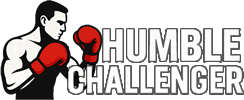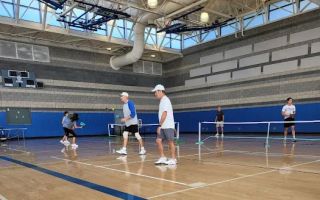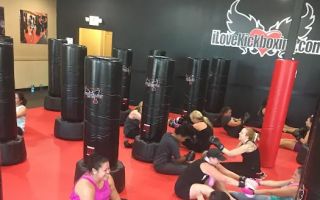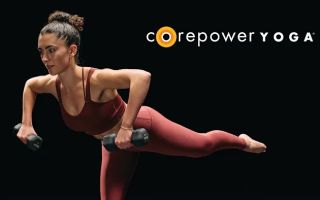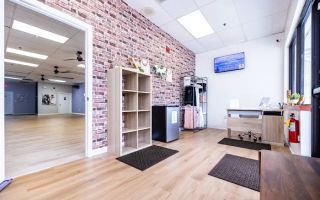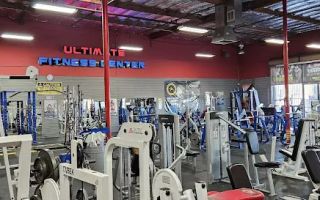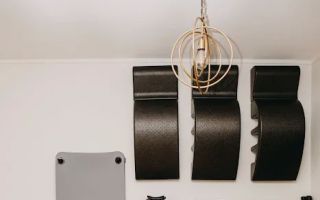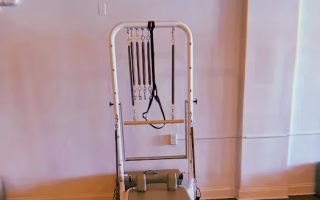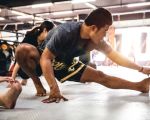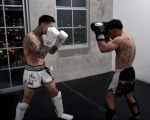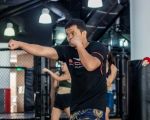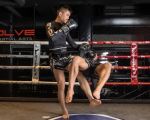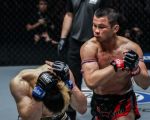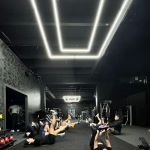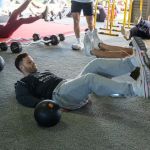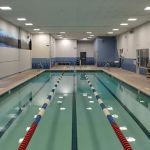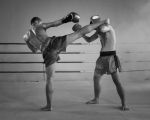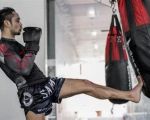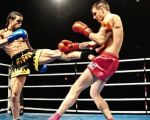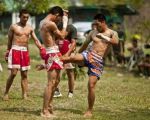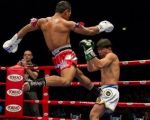Muay Thai for Improving Posture and Core Strength: A Comprehensive Guide
- Why Muay Thai Improves Posture
- How Muay Thai Builds Core Strength
- Muay Thai Techniques for Better Posture
- Muay Thai Exercises to Strengthen Your Core
- Real-Life Results from Muay Thai Training
- Getting Started with Muay Thai
1. Why Muay Thai Improves Posture
Muay Thai, often referred to as "The Art of Eight Limbs," is a striking martial art that utilizes punches, kicks, elbows, and knees. While it is known for its combat effectiveness, Muay Thai is also incredibly beneficial for improving overall posture. The foundation of good posture lies in balance, strength, and body awareness—qualities that are enhanced through Muay Thai training.
Muay Thai incorporates numerous movements that engage and strengthen the muscles responsible for holding your body in a proper alignment. The art demands a strong, upright stance, and this constant engagement of core muscles naturally improves posture over time. By practicing Muay Thai, you'll develop a heightened sense of body control, which translates into better posture during everyday activities.
2. How Muay Thai Builds Core Strength
Core strength is at the heart of every Muay Thai technique. Whether you're throwing a punch, kick, or knee strike, your core muscles play a vital role in stabilizing your body and generating power. Muay Thai training emphasizes the use of the core to perform explosive movements, resulting in a strong and resilient core over time.

Greener Postures Yoga
Next to Hannafords, 65 Gray Rd Suite 6, Falmouth, ME 04105, USA
Engaging the Core in Every Movement
In Muay Thai, almost every strike and defensive move requires a stable and engaged core. For example, when delivering a roundhouse kick, the torso rotates from the core, engaging the abdominals, obliques, and lower back muscles. Similarly, in clinch work, where fighters use their knees and elbows, the core is continually engaged to maintain balance and control. This consistent use of the core muscles during training leads to improved strength and endurance in the abdominal and lower back areas.

EncoreGym
2636 Shadelands Dr, Walnut Creek, CA 94598, USA
Muay Thai Drills for Core Strength
Muay Thai practitioners often perform specific drills, such as shadow boxing, bag work, and sparring, which all require substantial core engagement. Additionally, exercises like sit-ups, leg raises, and medicine ball throws are common in Muay Thai conditioning routines. These exercises specifically target the muscles responsible for core stability and strength.
3. Muay Thai Techniques for Better Posture
Several Muay Thai techniques directly contribute to better posture by strengthening the muscles that support the spine and pelvis. Some of the most effective techniques for improving posture include:
The Basic Stance
Muay Thai's traditional stance is designed to maintain balance while allowing for quick attacks and defenses. By practicing this stance, practitioners build strength in their legs and core, as well as improve their overall alignment. The positioning of the head, shoulders, and hips during the stance encourages a natural, upright posture that becomes ingrained in daily movements.
Clinching
Clinching, a technique used to control an opponent in close combat, requires practitioners to maintain a straight back and strong posture to avoid being off-balance. Through clinching, Muay Thai fighters develop better awareness of their spine alignment and strengthen the muscles around the back and neck, which are essential for maintaining proper posture.
4. Muay Thai Exercises to Strengthen Your Core
There are several exercises in Muay Thai that can be used specifically to strengthen the core muscles. These exercises not only improve your posture but also enhance your overall athleticism:
Planks
Planks are one of the most effective exercises for building core strength, and they are often incorporated into Muay Thai conditioning routines. By holding a plank position, you engage the muscles of the abdomen, back, and shoulders, all of which contribute to a stronger, more stable core.
Medicine Ball Twists
Medicine ball twists target the oblique muscles, which are crucial for rotational movements like throwing punches and kicks. This exercise also helps to stabilize the lower back and hips, which are essential for maintaining good posture while moving.
Leg Raises
Leg raises are another core-strengthening exercise that Muay Thai practitioners use. This movement focuses on the lower abdominal muscles, which are key for maintaining an upright posture and supporting the spine during movement.
5. Real-Life Results from Muay Thai Training
Many individuals who incorporate Muay Thai into their fitness routines experience significant improvements in both posture and core strength. Take Sarah, for example, who struggled with poor posture due to long hours of sitting at a desk. After six months of Muay Thai training, Sarah noticed that her posture improved dramatically. "I used to slouch all the time, but now I stand up straighter and feel more balanced," she says.
John, a former athlete, also found that Muay Thai training helped him recover from an old injury by rebuilding his core strength. "I was amazed at how much my core improved. It’s given me more stability and control in every aspect of my life, both in and out of the gym," John shares.
6. Getting Started with Muay Thai
If you’re looking to improve your posture and core strength, Muay Thai is an excellent choice. Whether you're a complete beginner or someone with experience in other martial arts, Muay Thai offers a unique combination of cardiovascular exercise, strength training, and functional movement that can help transform your body.
To get started, find a local Muay Thai gym or trainer who can guide you through the basic techniques. Consistency is key—by regularly practicing the movements and exercises, you’ll soon notice improvements in your posture and core strength. If you’re serious about taking your fitness to the next level, Muay Thai offers a comprehensive workout that can benefit your overall health and athleticism.
For more information on Muay Thai training and resources, visit Humble Challenger.
